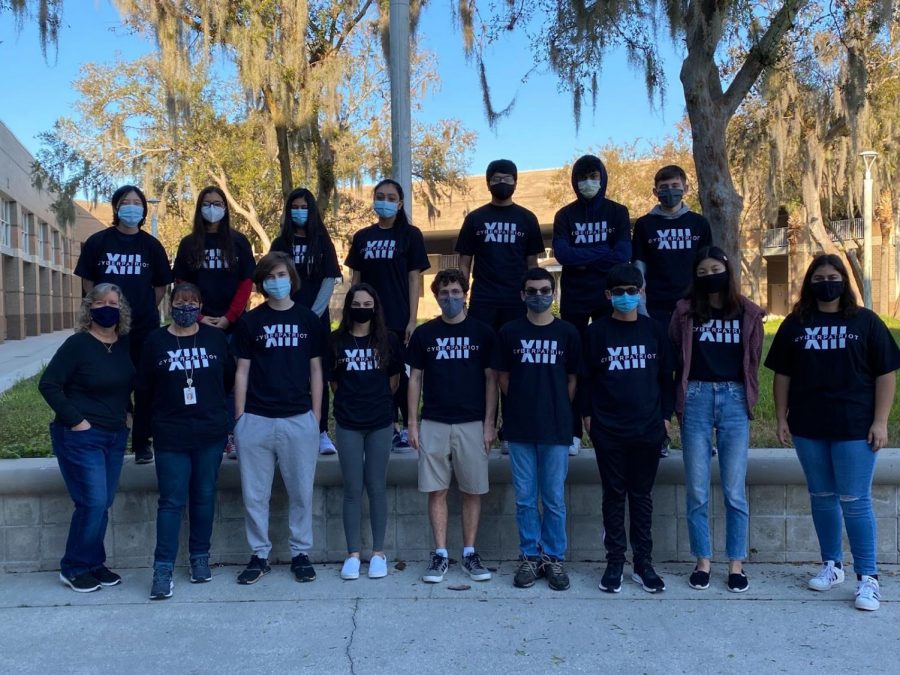Caution this article contains the author’s perspective and does not necessarily reflect the views of The Bear Truth News or Winter Springs High School.
On July 1, 2022, the “Parental Rights in Education” bill (HB 1557, also known as the “Don’t Say Gay Bill by critics) took effect in Florida. The bill’s goal is to increase parent involvement in Floridian education, specifically in lessons regarding gender identity and sexual orientation by banning their inclusion in the Floridian curriculum in grades Pre-K-8.
Though these new restrictions may seem helpful, they make it harder for children to learn about diverse identities and romantic attractions as well as sexuality. This, in turn, harms LGBTQ+ youth by further stigmatizing their identities.
The bill intends for caregivers to educate children about these topics at home, therefore increasing parent involvement. However, this approach is ineffective in teaching children credible information about new topics like gender identity and romantic/sexual orientation. This is because many parents find it difficult to teach concepts they received limited education on to their children.
Before analyzing the bill’s effect on students, it is important to understand the significance of diverse education by understanding the meaning of these terms themselves. Knowledge of the relationship between human sexuality and romantic attraction also plays a role in understanding HB 1557.
First, APA’s Dictionary of Psychology defines sexuality as: “all aspects of sexual behavior, including gender identity, orientation, attitudes, and activity.”
In addition, the University of North Carolina defines romantic orientation as: “attraction that makes people desire romantic contact or interaction with another person or persons.”
Finally, gender is: “the behavioral, cultural, or psychological traits typically associated with one sex” (via Merriam-Webster).
Regarding romantic attraction and sexuality: the two concepts are separable, but they typically overlap. For this reason, in general conversation, they are often considered one idea. So, in the context of HB 1557’s restrictions, “sexuality” most likely refers to both discussions of romantic orientation and sexuality, though it is impossible to know for sure.
With proper understanding of the bill’s wording and the definition of the terms used in its composure, it is now possible to fully understand its impact. However, the bill’s ambiguity remains an obstacle to Floridians even with a proper understanding of the language used in its writing.
For this reason, Floridians have been left to analyze the context surrounding the bill to decipher its exact goals. Though the bill claims to restrict all discussion of gender identity and sexual/romantic orientation from pre-kindergarten to grade eight, it is more likely that the bill aims to restrict discussions of minority groups in these categories.
For example, in an official article on Governor Ron DeSantis’ website, a quote from Commissioner of Education Manny Diaz Jr. reads “The Department [of Education] will remain focused on teaching students core subjects, rather than woke gender ideology or inappropriate topics.” This excerpt appeared in flgov.com’s article about HB 1069 but still pertains to HB 1557 contents as Diaz still considers romantic and sexual orientation “inappropriate topics” for all students besides high school children.
Also, the “indoctrination” Diaz refers to is the idea that social contagion can cause young people to falsely identify as LGBTQ+ (lesbian, gay, bisexual, trans, queer, plus) upon exposure to diverse identities. This theory has not yet been proven in the scientific community and lacks evidence.
Furthermore, DeSantis himself said that “[parents] should be protected from schools using classroom instruction to sexualize their kids as young as [five] years old” (via flgov.com) about House Bill 1557. On the surface, this seems like a worthy cause, but in actuality, reports of teachers sexualizing children through discussion and education of sexual and romantic orientations have not been widely published online, nor cited in government discussions of the new bills.
Almost three-quarters of LGBTQ+ students who responded to the GLSEN National School Climate Survey in 2021 reported there were “no LGBTQ+ topics in any classes” (via glsen.org), so it is highly unlikely students are being sexually violated through these discussions; they rarely take place.
Due to the lack of scientific evidence backing several Floridian politicians’ support for the new bills, many have logically concluded that the grounds for the bill are based on unfounded beliefs fueled by ignorance surrounding LGBTQ+ issues.
Diaz cited a theory that does not pertain to LGBTQ+ youth, and DeSantis’ idea relied on the harmful stereotype that LGBTQ+ identities are solely sexual and predatory. The governor implied that LGBTQ+ people are prone to grooming kids, hence his focus on the LGBTQ+ community “sexualizing children.”
The confusing writing coupled with the negative sentiments from politicians towards the LGBTQ+ community has led to many teachers’ higher avoidance of LGBTQ+ topics compared to heteronormative concepts when responding to the new bill’s protocols.
In short, because the bill seems more targeted towards LGBTQ+ individuals, educators in heteronormative relationships feel less pressure to conform to the restrictions of the bills.
For instance, in the Tampa Bay area, teachers in LGBTQ+ presenting relationships have been discouraged from specifically discussing their partners; educators in straight-passing relationships have not been asked to do the same. By the same token, teachers have been banned from hanging pride flags in classrooms to prevent discussions about sexual/romantic identity and gender orientation (via wtsp.com).
Additionally, a seventh-grade teacher from the Wesley Chapel area was instructed to “ignore personal questions and instead move on with the lesson” after a parent complained that he responded to a student’s question regarding same-sex couples’ ability to conceive children. The student referenced the teacher’s same-sex relationship when asking the question. When Chapel responded with: “they can adopt or have biological children” he was subject to a week-long investigation by the school to ensure he did not violate the new bills’ restrictions (via washingtonpost.com).
The bills have effectively alienated LGBTQ+ students at school, as now the amount of discussions and displays of support for the LGBTQ+ community have been reduced. Because students see less representation at school in their day-to-day lives, it will make it even harder for them to accept themselves and/or others in the community.
Many contend that though it is important for LGBTQ+ youth to feel represented and welcomed, school may not be the place for these discussions; these ideas should be explored at home.
And while it is true that support from family plays an important role in LGBTQ+ youth’s mental health, support at school is also important. There has been no scientific evidence of harm done to heterosexual students through LGBTQ+ lessons, but many young LGBTQ+ individuals have been harmed by a lack of representation at school.
GLSEN’s 2021 National School Climate Survey supports this claim and states that “LGBTQ+ youth who attend schools with inclusive curriculum have higher GPAs, a greater sense of belonging, are more likely to pursue post-secondary education.” By further stigmatizing these topics, the government harms the general welfare of the American people by promoting ignorance surrounding LGBTQ+ issues.
Some supporters of the bill believe that the restrictions are not as oppressive as critics make them out to be, as HB 1557 still allows LGBTQ+ education in high school. But this is not the case, because most children’s awareness of sexuality begins much earlier. The American Academy of Pediatrics claims that many children begin to gain curiosity about their bodies before they even enter pre-kindergarten. Moreover, it is common for children as young as five to become aware of their romantic/sexual orientation (via plannedparenthood.org).
After considering these findings, it becomes apparent that sexuality, gender, and romantic orientation are normal concepts that many people become aware of from a young age. For this reason, factual information must be taught in schools, and not censored, to ensure that children can develop healthy attitudes towards these topics.
As of January 2024, House Bill 1557 is almost two years old. Despite the lack of evidence supporting the bill’s goals, it continues to dominate children’s academics. It is crucial that people continue to bring awareness to its harmful nature before this example of well-masked censorship goes unnoticed, or worse, becomes forgotten.






